The city is turning from its summer-time aroma of grassy lucha to the autumnal richness of shupu.
Some little pockets of green hold out against the oncoming tide of red leaves...
Some little pockets of green hold out against the oncoming tide of red leaves...
(I just noticed that the majority of photgraphs in this article look much better when full-size, rather than in their smaller size. See if you agree, by clicking to enlarge.)
Snow-blind from staring at a word-processor for too long, there's nothing quite like a strong shengpu to bring me back into my body. After long periods of writing, it does begin to feel as if the life is slowly receding - my nose and cheeks become paler and cooler, my feet and fingers get chilly. A cup of god tea sorts it all out...
Today, I want to write about the "Dali" tuocha from Xiaguan, priced at a pittance from Yunnan Sourcing and Dragon Teahouse. Dali used to be a kingdom in Yunnan, before the Mongols squashed them [insert modern-day simile here]. If the inhabitants of Dali drank tea like this every day, they'd easily see off a good Mongol horde or two.
Unwrapping the tuocha reveals a hugely potent aroma. With no exaggeration, the rich, tobacco-like scent from this tea filled the room just on unwrapping. It is surprisingly active, and this is a good sign of impending character. If there's anything I can't abide, it's a bland tea.
It's tight. Tight like nuclear fusion. Unlike some of the other Xiaguan tuocha from this year, the Dali tuocha is old-fashioned in that it appears to be the product of volcanic compression. I chisel out a portion of leaves. Attempts to leave them unbroken are entirely futile. (This is a good candidate for steaming apart.)
Of course, this being Xiaguan, the leaves are fragmented anyway, and so a wee bit of extra leaf breakage doesn't make a great difference. The blend is based on the old "Cang Er" recipe, which is seemingly retired. We have small leaves, but they are unoxidised (being their natural colour), and a goodly number of tips are included.
Of course, this being Xiaguan, the leaves are fragmented anyway, and so a wee bit of extra leaf breakage doesn't make a great difference. The blend is based on the old "Cang Er" recipe, which is seemingly retired. We have small leaves, but they are unoxidised (being their natural colour), and a goodly number of tips are included.
That rich, tobacco-like aroma from the dry leaves carries over into the wenxiangbei [aroma cup]. It brews a beautiful, deep yellow colour, with no evidence of cheeky processing. I like it when Xiaguan have the backbone to leave their tea alone, rather than cook it into mediocrity.
The first infusions are packed with real content: mushrooms, sweetness, ending in a pleasant floral yunxiang [after-aroma]. It is a chunky tea, having a thick body. For the tiny asking price, there is quite a bit happening in this little tea.
The complexity is quite short-lived, and by the fourth or fifth infusion, it has settled into a pleasant sweetness. It fades gracefully, rather than ending roughly, and that's A Good Thing.
The complexity is quite short-lived, and by the fourth or fifth infusion, it has settled into a pleasant sweetness. It fades gracefully, rather than ending roughly, and that's A Good Thing.
Xiaguan have reacted quite well to the post-investment bubble world of pu'er. This year, I have been particularly impressed by their Feitai (FT) range, and their new Nanzhao [southern edict] explorations. Outside of the premium brands, they have been a lot more sketchy, but this "Dali" tuocha is, for the tiny asking price, really good fun.
A word of warning: it is very easy to use too many leaves with this tea, perhaps moreso even than with the usual Xiaguan tight tuocha. Being conservative with the leaf quantity is something that I find incredibly difficult, but it pays dividends with this tea, which can otherwise be rather punishing.
With a smaller amount of leaves, what complexity there is within these leaves can be successfully coaxed out, along with a soothing, almost narcotically slumber-inducing chaqi.
A fun, fine little tuocha - but don't expect it to change your world. If you, like me, are looking for a highly inexpensive, potent treat that has plenty of tobacco without the processing that usually accompanies it, this is a worthwhile tea.
A word of warning: it is very easy to use too many leaves with this tea, perhaps moreso even than with the usual Xiaguan tight tuocha. Being conservative with the leaf quantity is something that I find incredibly difficult, but it pays dividends with this tea, which can otherwise be rather punishing.
With a smaller amount of leaves, what complexity there is within these leaves can be successfully coaxed out, along with a soothing, almost narcotically slumber-inducing chaqi.
A fun, fine little tuocha - but don't expect it to change your world. If you, like me, are looking for a highly inexpensive, potent treat that has plenty of tobacco without the processing that usually accompanies it, this is a worthwhile tea.
I bet these little fellows are all grown up by now...

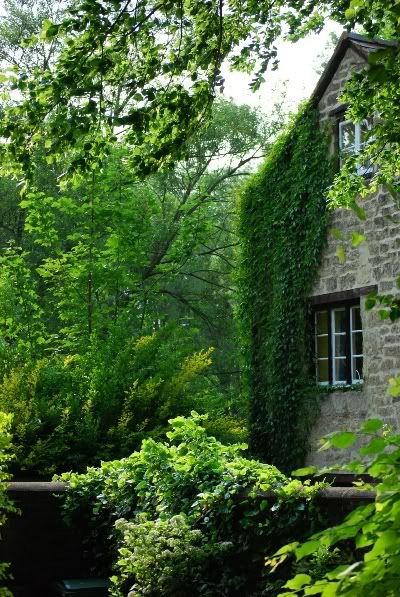
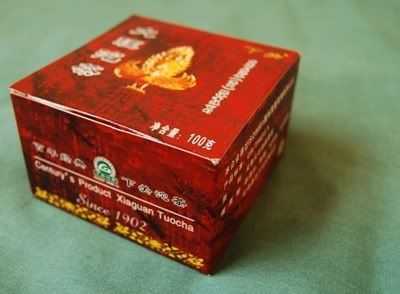
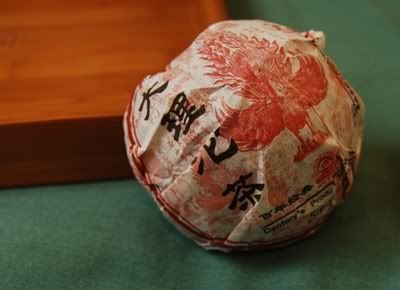
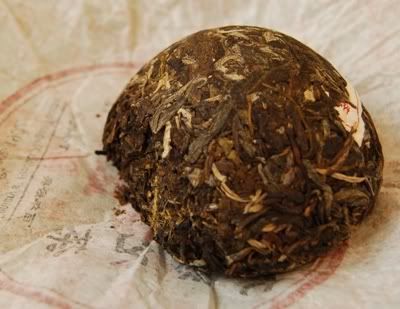
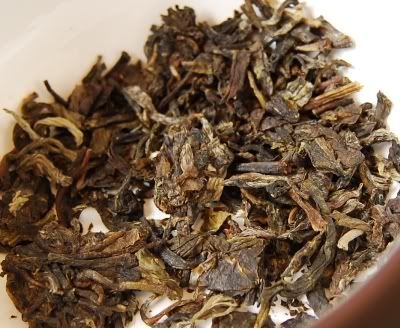
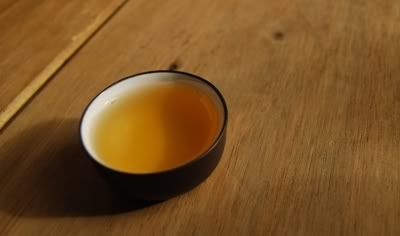
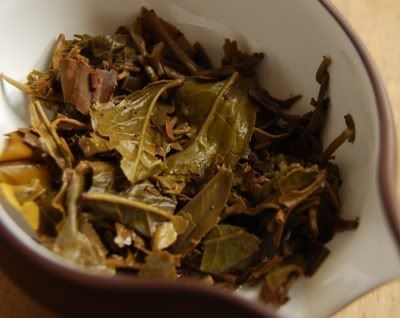

Dali is also the name of a city a few kilometers from the city of Xiaguan. This city was the capital of Dali Kingdom.
ReplyDeleteIt's a beautiful place with old buildings, pagodas and beautiful mountains nearby. A few too many tourists for my liking, but what can you do!
Sounds like a good place to spend some R&R... :)
ReplyDeleteP.s. Lei says to send her greetings!